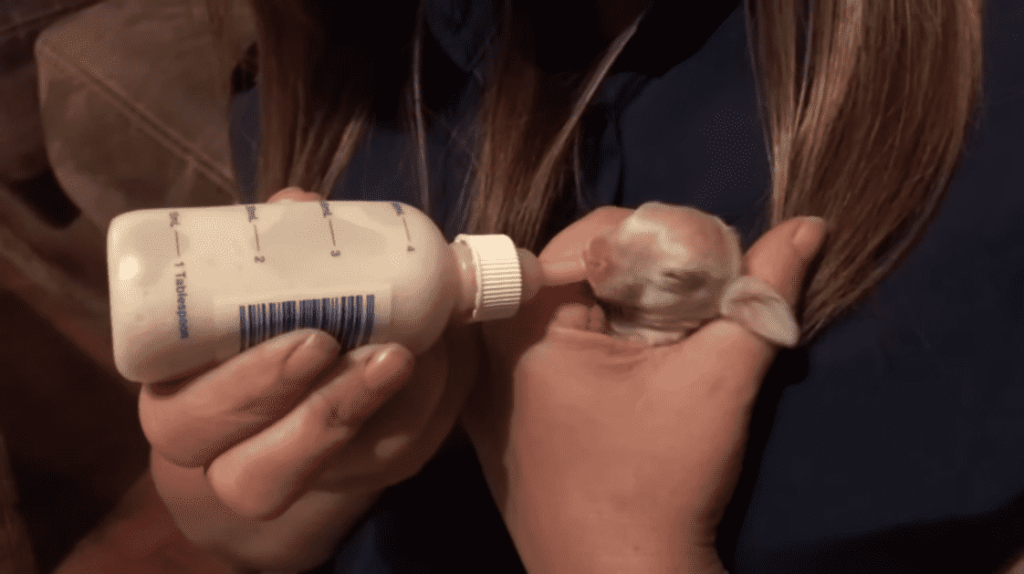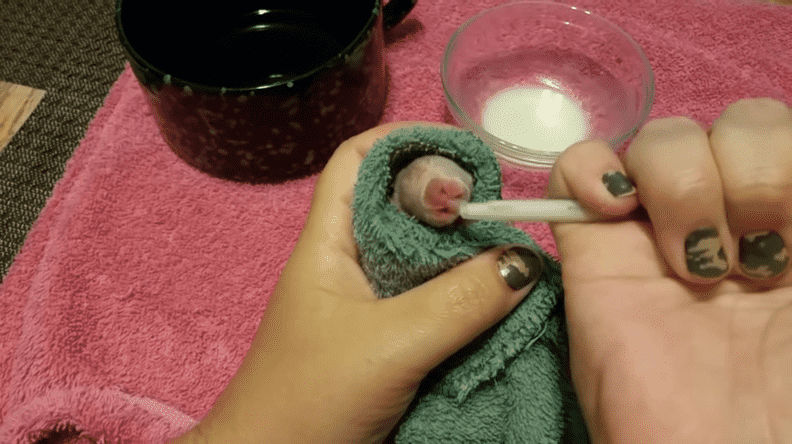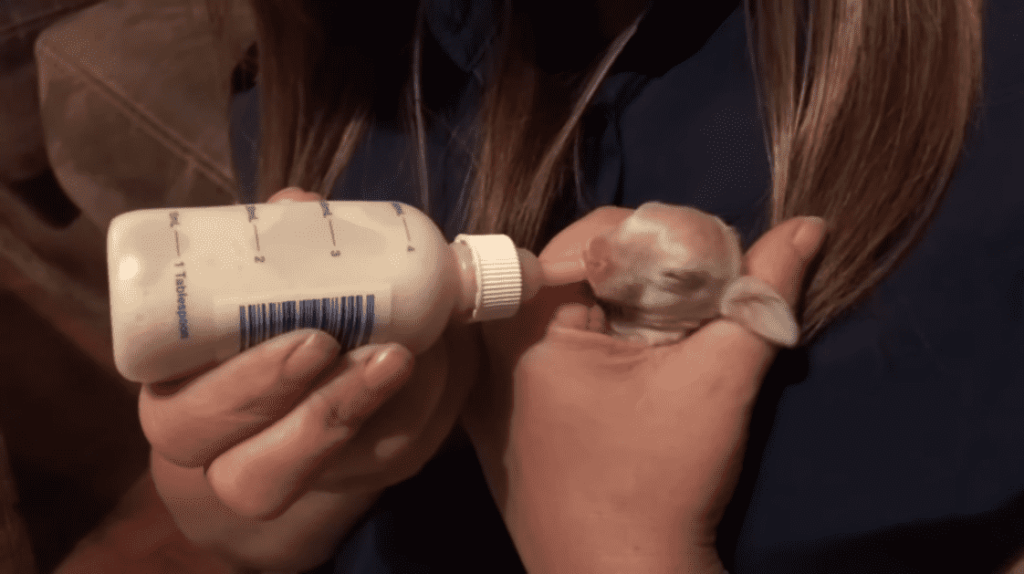Table of Contents
ToggleFeeding a Newborn Bunny: What You Need to Know
Sometimes, situations arise where newborn or very young rabbit kits need to be hand-fed. This could be due to the death of the mother rabbit or because the mother is not feeding her kits properly. If you find yourself in such a situation, what should you do? In this discussion, we will cover all about feeding a newborn bunny. Baby rabbits are extremely delicate by nature, so it is requested that you read each step carefully with patience and attention.
Comprehending the Needs of a Newborn Bunny
Nutritional Needs
Newborn bunnies require specialized attention, particularly regarding their nutritional needs. These delicate creatures are born blind and rely heavily on their mothers for warmth and sustenance. If the mother is not available, it’s crucial to provide the right care to ensure the bunny’s survival. Newborn rabbits are entirely dependent on milk for their nutrition. Unlike adult rabbits, they can’t consume solid food and need a formula that mimics their mother’s milk as closely as possible.
Keeping Warm
The first few days and weeks are critical for a newborn bunny’s survival and development. Their bodies are not yet capable of regulating temperature efficiently, so keeping them warm is as important as feeding them. An artificial nest can help provide the necessary warmth. You can use soft towels or cloths to create a cozy environment, and a heating pad set on low can be placed under half of the nest, allowing the bunny to move away if it gets too warm.
Hydration
Hydration is another critical component. Dehydration can set in quickly, particularly in very young bunnies. Make sure the milk formula you use is prepared according to the instructions, as incorrect preparation can lead to inadequate hydration and nutrition.
Softly Handling
It’s essential to handle newborn bunnies gently. Their bones and bodies are fragile, and rough handling can cause injuries. When feeding, ensure the bunny is in a comfortable and secure position. Mimicking the natural nursing position can help the bunny feed more effectively and reduce the risk of aspiration.
Sanitary Needs

Additionally, newborn bunnies have specific sanitary needs. They require stimulation to urinate and defecate, which the mother usually provides by licking their genital area. You can replicate this by gently rubbing the area with a warm, damp cloth after each feeding. This step is crucial for their digestive health and overall well-being.
Understanding the unique needs of a newborn bunny is vital for providing the care that will help them grow and thrive. Each aspect of their care, from nutrition and hydration to warmth and sanitation, plays a crucial role in their early development.
Newborn Bunny Feeding Schedule
It’s very crucial to maintain the right schedule for feeding.
- Newborn bunnies typically need to be fed once a day, much like they would be if their mother were present. Establishing a regular feeding schedule is vital for their digestion and overall well-being. Ideally, you should feed them twice daily, in the early morning and late evening. This mimics the natural feeding times they would have if nursed by their mother.
- Observe your bunny for signs of hunger, such as restlessness or rooting behavior, where they nuzzle around looking for a source of milk. On the other hand, if a bunny turns away from the nipple or milk dribbles from its mouth, these may be signs that it is full.
- Overfeeding is a common concern and can lead to digestive problems. Newborn bunnies have very small stomachs, so it’s important to monitor the amount of formula they are consuming. Start with small amounts and gradually increase as they grow. Following the guidelines on the milk replacer packaging can help ensure you’re giving the appropriate amount. Keep in mind that bunnies can be very delicate, and their digestive systems are not fully developed.
- In the early stages, feeding can take some time, so patience is key. Make sure each feeding session is calm and unhurried. This not only helps the bunny feed more effectively but also makes the experience less stressful for both of you.
- You may need to adjust the schedule as the bunny grows. Some bunnies may need more frequent feedings initially, especially if they are not gaining weight as expected. Regularly weighing your bunny can help you determine if they are getting enough nutrition.
- Keep an eye on the bunny’s overall condition. Healthy newborns should appear active and alert after feeding, with smooth, firm bellies. If you notice any signs of distress, consult with a veterinarian who specializes in rabbits.
Selecting the Appropriate Milk Formula

When choosing a milk formula for a newborn bunny, it is important to avoid cow’s milk, as it doesn’t contain the necessary nutrients and can cause digestive issues. Instead, look for specialized formulas designed for rabbits. Kitten Milk Replacer (KMR) is a common recommendation and is easily accessible. This formula closely matches the nutritional profile required for newborn bunnies and provides essential nutrients for their growth.
Additionally, rabbit-specific milk replacers can be found at pet stores or through veterinary clinics. These products are formulated to meet the unique dietary needs of newborn rabbits and ensure they receive the proper balance of proteins, fats, and carbohydrates.
When preparing the formula, always follow the instructions on the packaging to ensure the correct nutritional balance. Using the wrong proportions can lead to inadequate nutrition or health issues for your bunny. Mixing the formula correctly is crucial for maintaining the bunny’s hydration and overall well-being.
Feeding a newborn bunny involves using the appropriate tools to ensure safe and effective feeding. Small syringes or eyedroppers are typically used because they allow for controlled feeding, reducing the risk of choking or aspiration. Always feed the bunny in an upright or slightly tilted position, similar to their natural nursing posture, to prevent milk from entering their lungs.
Make sure to prepare fresh formula for each feeding session and discard any leftovers, as bacteria can grow in leftover milk, potentially causing illness. Clean feeding tools thoroughly after each use to maintain hygiene and prevent contamination.
If you’re uncertain about the best milk replacer or how to prepare it, consult with a veterinarian who has experience in rabbit care. They can provide guidance tailored to your bunny’s specific needs and ensure that you are providing the best possible care.
Correct Feeding Methods

Proper feeding techniques are essential to ensure the safety and nourishment of a newborn bunny. Begin by choosing the right tools: small syringes or eyedroppers are ideal for controlled feeding, minimizing the risk of choking. Hold the bunny gently yet securely, positioning it upright or slightly tilted, akin to its natural nursing posture. This position helps prevent milk from entering the lungs, reducing the risk of aspiration.
Introduce the formula slowly, allowing the bunny to suckle at its own pace. Never force the milk, as this can cause the bunny to choke. Patience is crucial; feeding sessions may take time, but a slow, steady approach is safer. Ensure the syringe or eyedropper is clean before each use to maintain hygiene and prevent contamination.
Observe the bunny closely during feeding. Signs that the bunny is feeding well include steady, rhythmic suckling and no milk dribbling from the mouth. If the bunny shows distress or refuses to feed, pause and allow it to rest before trying again.
After feeding, check for signs of proper digestion. A well-fed bunny will have a smooth, firm belly and appear content. Gently stimulate the bunny’s genital area with a warm, damp cloth to encourage urination and defecation, mimicking the mother’s natural behavior. This step is crucial for maintaining digestive health and preventing complications.
Store and prepare the milk formula according to the instructions, using fresh formula for each session. Leftover milk can harbor bacteria, posing a risk to the bunny’s health. Clean all feeding tools thoroughly after each use to ensure they are free from contaminants.
If you encounter any issues or are unsure about the feeding process, consult with a veterinarian who specializes in rabbit care. Their expertise can provide valuable guidance tailored to your bunny’s specific needs.
Observing Health and Development
Monitoring your newborn bunny’s health and development is crucial for ensuring they are growing properly. One of the primary indicators of good health is steady weight gain. Weigh your bunny regularly using a small, accurate scale and keep a record of their progress. Ideally, a newborn bunny should double its birth weight within the first week.
Pay close attention to your bunny’s behavior and energy levels. A healthy bunny will be active, alert, and responsive. Signs of potential health issues include lethargy, bloating, or diarrhea. These symptoms can indicate underlying problems that require immediate veterinary attention. Don’t hesitate to consult a vet if you notice anything unusual; early intervention can make a significant difference in your bunny’s well-being.
Regular veterinary check-ups are also essential. A vet experienced in rabbit care can provide valuable insights into your bunny’s health and development, help you address any concerns, and offer advice on best practices for their care. Keeping up with these check-ups ensures that any potential issues are identified and managed early on.
In addition to physical health, consider the bunny’s environment and overall comfort. Ensure they are kept in a clean, warm, and secure area. Proper sanitation is vital to prevent infections and other health complications. Regularly clean their living space and provide fresh bedding to maintain a healthy environment.
As your bunny grows, you may notice changes in their feeding habits and energy levels. These changes are normal and indicate their development. However, if you observe sudden or drastic changes, it’s important to seek veterinary advice to rule out any potential issues.
Finally, stay informed about common health concerns specific to newborn bunnies. Understanding these can help you recognize early signs of trouble and act quickly to provide the necessary care. By staying vigilant and proactive, you can help ensure your newborn bunny grows into a healthy, happy adult rabbit.
Conclusion
So that’s all for today. Keep remember feeding newborn bunny is very crucial thing. To do this you have to follow each and every part carefully. I have plenty of articles about bunny care, tips and behavior, you can check these out. Thanks for reading.

